Software testing is an integral part of the software development process, ensuring that the end product meets the required specifications, is functional, and is error-free. As such, the demand for skilled software testers has been on the rise, with many organizations recognizing the importance of this role in achieving their business objectives.
Becoming a software tester can be a lucrative career path, providing job security and opportunities for growth and development. However, the process of becoming a software tester requires a combination of technical and non-technical skills, as well as a willingness to learn and adapt to new technologies and methodologies.
In this article, we will explore the steps to becoming a software tester, starting with understanding the role and responsibilities of a software tester. We will discuss the different types of software testing, including functional testing, performance testing, and security testing, among others.
We will also cover the essential technical skills required to become a software tester, such as programming languages, testing frameworks, and automation tools. Additionally, we will delve into the non-technical skills that are equally important, such as communication, attention to detail, and problem-solving.
What Is A Software Tester?
The primary objective of a software tester is to ensure that the software meets the quality standards set by the organization and the client. They use various testing methodologies, tools, and frameworks to identify defects and report them to the development team for fixing. They also collaborate with other stakeholders to ensure that the software meets the business needs and the end-user’s expectations.
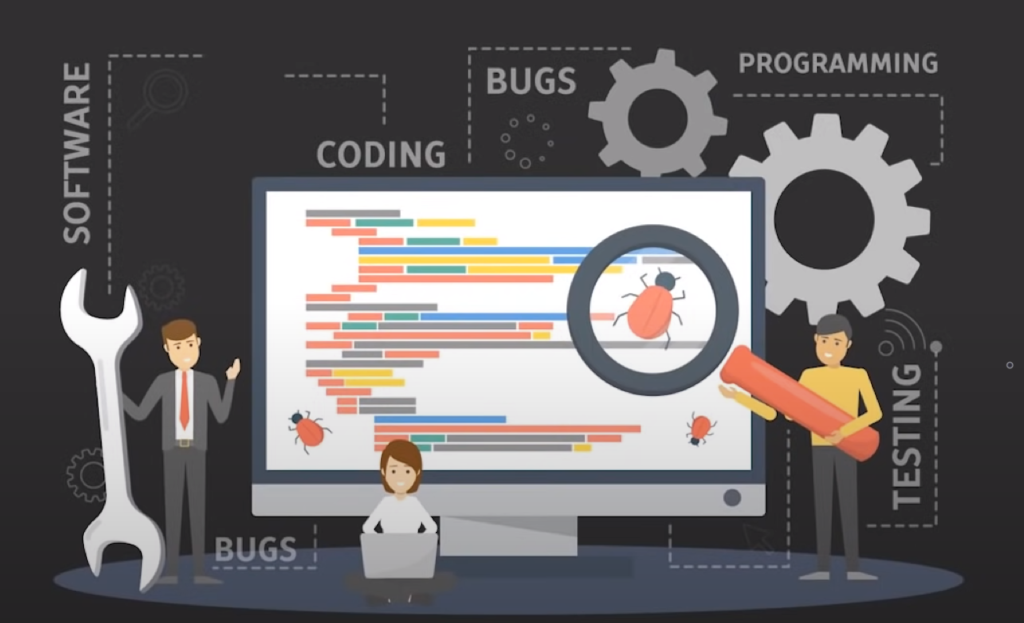
A software tester needs to have a combination of technical skills, analytical skills, communication skills, and attention to detail. They also need to be able to work well in a team environment and be flexible in adapting to changing requirements and priorities [1].
Why Becoming A Software Tester Is A Good Career Option:
In-Demand
The demand for software testers has been increasing over the years, and it is expected to continue growing as more organizations adopt new technologies and develop software products.
The increased demand for software testers is due to the importance of software testing in the software development process. As software products become more complex, the need for comprehensive testing increases, and software testers are needed to ensure that the software meets the quality standards set by the organization and the client.
In addition, the increased emphasis on cybersecurity and data privacy has led to an increased need for software testers to perform security testing and ensure that software products are secure and safe to use.
Makes It Easy For A Fresher To Enter The IT Field
Software testing is an excellent career option for people who are looking to enter the IT field, especially for freshers who have little or no experience. Software testing is a good starting point for people who are new to the IT industry as it provides an opportunity to learn about software development processes, tools, and methodologies.
Unlike other IT careers that require specialized skills and extensive knowledge, software testing is relatively easy to learn, and you can become a software tester with minimal training and education. As long as you have a basic understanding of software development and some knowledge of programming languages, you can start learning software testing and enter the IT field.
Easy-To-Learn Tools
Another advantage of becoming a software tester is the availability of easy-to-learn tools that make it easier to perform testing activities. There are numerous software testing tools available in the market that simplify the testing process and help testers perform their tasks more efficiently.
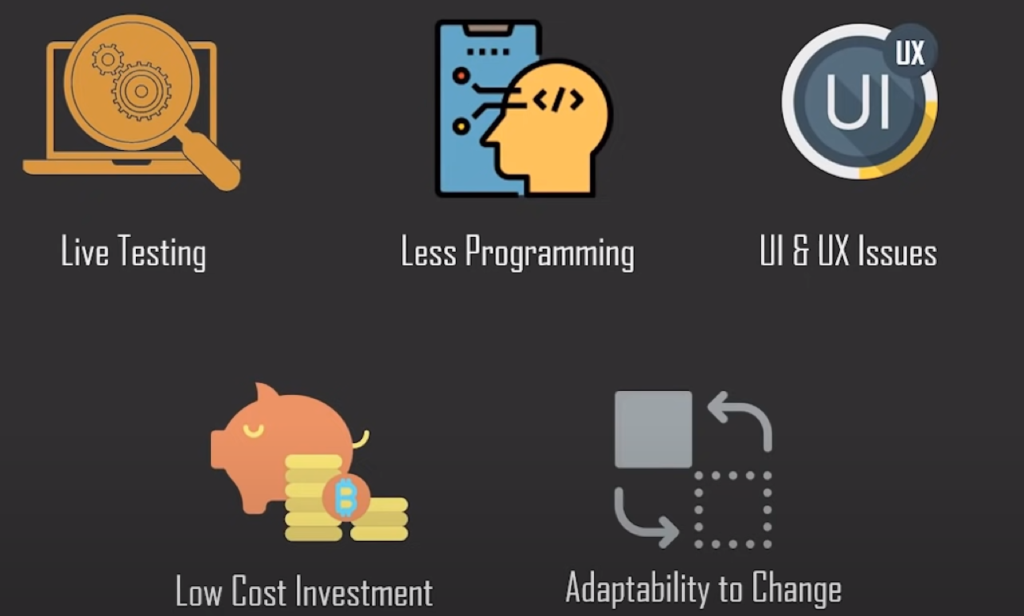
Many of these software-testing tools have user-friendly interfaces and do not require extensive programming knowledge, making it easier for software testers to learn and use them. Additionally, many of these tools offer automation capabilities, which reduce the time and effort required to perform testing activities and increase the accuracy and reliability of testing results.
Freelance Job Opportunities
Software testing is an excellent career option for people who want to work as freelancers and enjoy the flexibility and freedom that comes with freelancing. With the increasing demand for software testing services, there are plenty of freelance job opportunities available for software testers.
Freelancing as a software tester allows you to work on a variety of projects and gain experience in different industries and domains. Additionally, you can work remotely, which means you can work from anywhere in the world as long as you have a computer and an internet connection.
What Qualifications Do You Need to Be a Software Tester?
To become a software tester, you do not necessarily need a formal degree or qualification. However, having a relevant degree or certification can be advantageous when looking for a job as a software tester.
Here are some of the qualifications and skills that can be beneficial for becoming a software tester:
- Degree in computer science or related field: A degree in computer science or a related field can provide a strong foundation in software development principles and programming languages, which are essential skills for software testers;
- Certifications: There are several certifications available for software testers, such as the ISTQB certification. These certifications demonstrate your knowledge and expertise in software testing, making you more desirable to employers;
- Knowledge of programming languages: Knowledge of programming languages such as Java, Python, and C++ can be beneficial for software testers. This knowledge enables them to write test cases and understand the underlying code;
- Analytical skills: Software testers need to have strong analytical skills to be able to identify defects and potential issues in software products;
- Attention to detail: Attention to detail is critical for software testers, as they need to identify small defects and ensure that software products meet the desired requirements;
- Communication skills: Good communication skills are essential for software testers, as they need to communicate with developers and other team members to ensure that software products are of high quality;
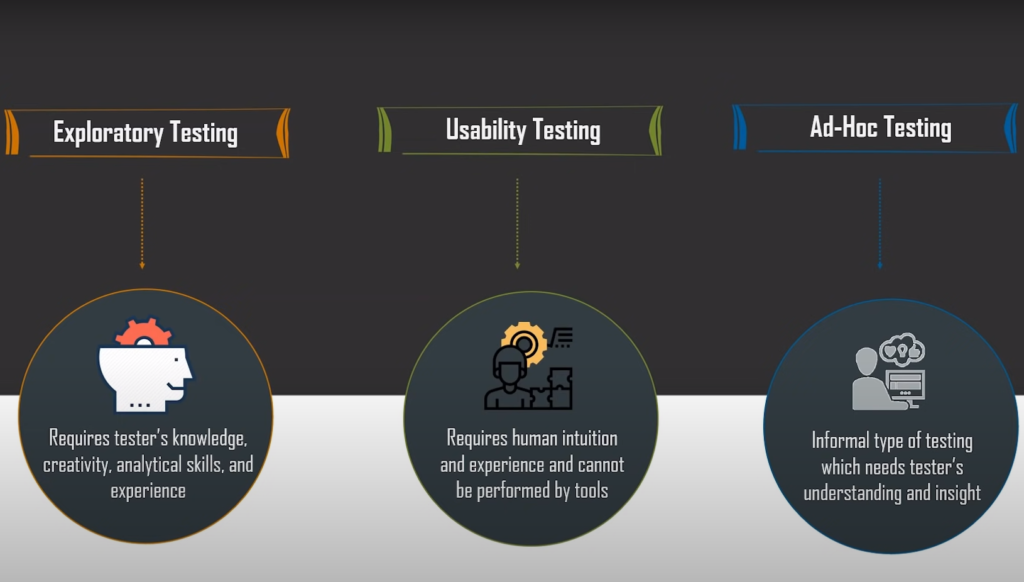
Typical Duties for a Software Tester
The duties of a software tester can vary depending on the organization and the project.
However, here are some typical duties that a software tester may perform:
- Test Planning: Software testers work with the development team to understand the requirements and create test plans. They determine the scope of testing and identify the testing strategies and tools that will be used;
- Test Case Creation: Testers create test cases based on the test plans. They develop test scenarios that mimic real-world scenarios to identify potential issues and defects in the software;
- Test Execution: Testers execute the test cases and document the results. They report any defects and work with the development team to resolve issues;
- Defect Management: Testers track the defects found during testing and report them to the development team. They provide detailed descriptions of the defects and collaborate with the team to resolve them;
- Regression Testing: Testers perform regression testing to ensure that changes to the software do not introduce new defects or issues;
- Test Automation: Testers may also be responsible for creating automated tests using testing tools such as Selenium or Appium. This helps to streamline the testing process and improve efficiency;
- Reporting: Testers provide regular reports on testing progress and the quality of the software. They may also provide recommendations for improvements or changes to the software;
How To Become A Software Tester:
1) Get A Relevant Degree
The first step in becoming a software tester is to get a relevant degree. While a degree is not always necessary, it can help you stand out in a competitive job market and provide you with the necessary foundation for a career in software testing.
2) Acquire The Necessary Skills
To become a successful software tester, you need to acquire the necessary skills.
Some of the essential skills for software testers include:
- Understanding of software development processes and methodologies;
- Knowledge of programming languages such as Java, Python, and C++;
- Ability to write test cases and test plans;
- Understanding of software testing tools and frameworks;
- Strong analytical and problem-solving skills;
- Good communication and teamwork skills;
There are several ways to acquire these skills, including online courses, training programs, and workshops. You can also gain these skills by participating in internships or working on open-source projects.
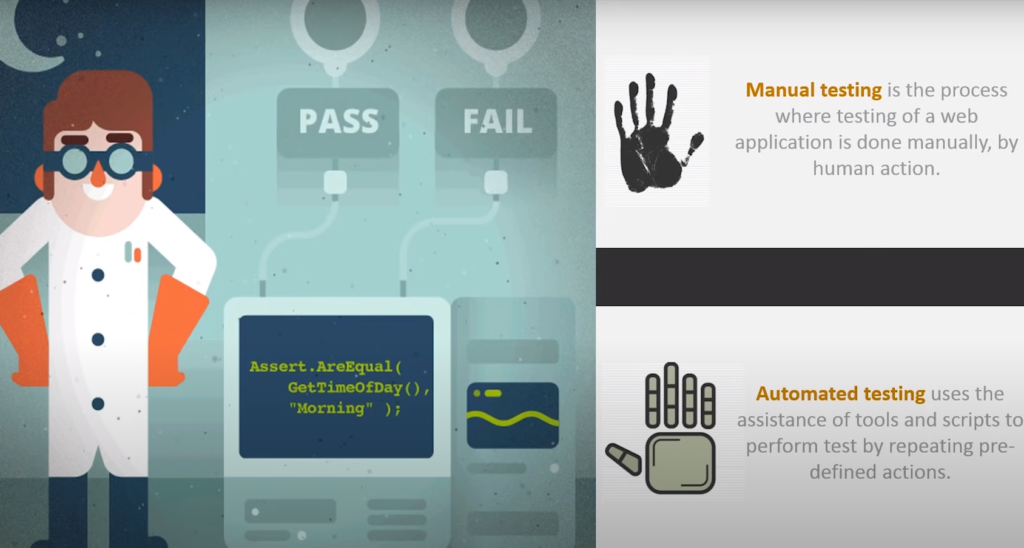
3) Gain Industry Experience
Gaining industry experience is an essential part of becoming a successful software tester. Industry experience provides you with the opportunity to apply your skills and knowledge in a real-world setting and gain practical experience working with software development teams. You can gain industry experience through internships, part-time jobs, or full-time positions.
Working in the industry also provides you with the opportunity to learn new skills, stay up-to-date with the latest technologies and trends, and network with other professionals in the field.
4) Get Certified
Getting certified is another way to demonstrate your expertise in software testing and stand out in a competitive job market. There are several certification programs available for software testers, including the ISTQB (International Software Testing Qualifications Board) certification, which is recognized worldwide.
Certification programs typically cover topics such as software testing principles, testing techniques, test management, and tools and automation. Obtaining a certification can help you demonstrate your knowledge and expertise in software testing and improve your chances of getting hired.
5) Software Tester Salary
The salary of a software tester varies depending on several factors, including location, industry, experience, and education. According to the Bureau of Labor Statistics, the median annual salary for software testers in the United States is $ 101,000 [2].
Software testers with less than a year of experience can expect to earn an average of $ 50,000 to $ 60,000 per year, while those with five or more years of experience can earn upwards of $ 100,000 per year. Senior software testers or those in leadership positions can earn even higher salaries.
Technical Skills Required To Become Software Tester:
Programming Skills
Programming skills are an essential requirement for software testers. A software tester must be able to understand and write code to effectively test software. They must be able to read and understand the code written by developers to create test cases and write automated tests. Software testers must have a good understanding of programming languages such as Java, Python, or C#, as these languages are commonly used in software development.
In addition, software testers must be familiar with programming concepts such as data structures, algorithms, and object-oriented programming. They should also be familiar with debugging tools and techniques to troubleshoot software defects effectively.
Front-End Skills
Front-end skills are also essential for software testers. Front-end skills include knowledge of HTML, CSS, and JavaScript. Software testers should have a good understanding of how web pages are structured, how CSS is used to style them, and how JavaScript is used to add interactivity.
In addition, software testers should be familiar with web development tools such as Chrome Developer Tools and Firebug. They should also have experience testing web applications across different browsers and devices.
Database Skills
Database skills are also essential for software testers. Software testers should be able to understand database concepts such as SQL, database schema, and data types. They should also be able to write SQL queries to extract data from databases.
In addition, software testers should be able to manipulate data in databases to create test data and perform database testing. They should be familiar with tools such as MySQL, SQL Server, and Oracle.
API Skills
API (Application Programming Interface) skills are also important for software testers. APIs are used to connect different software components, and software testers should be able to test these connections. Software testers should have a good understanding of RESTful API design, JSON and XML data formats, and HTTP protocols.
In addition, software testers should be familiar with API testing tools such as Postman, SoapUI, and REST-assured. They should also have experience testing APIs using automation frameworks.
Testing Tool Skills
Software testers should also be familiar with various testing tools such as Selenium, Appium, and TestNG. These tools are used to automate the testing process and make it more efficient. Software testers should be able to write and execute test scripts using these tools.
In addition, software testers should be familiar with performance testing tools such as JMeter and LoadRunner. These tools are used to test the performance and scalability of software applications.
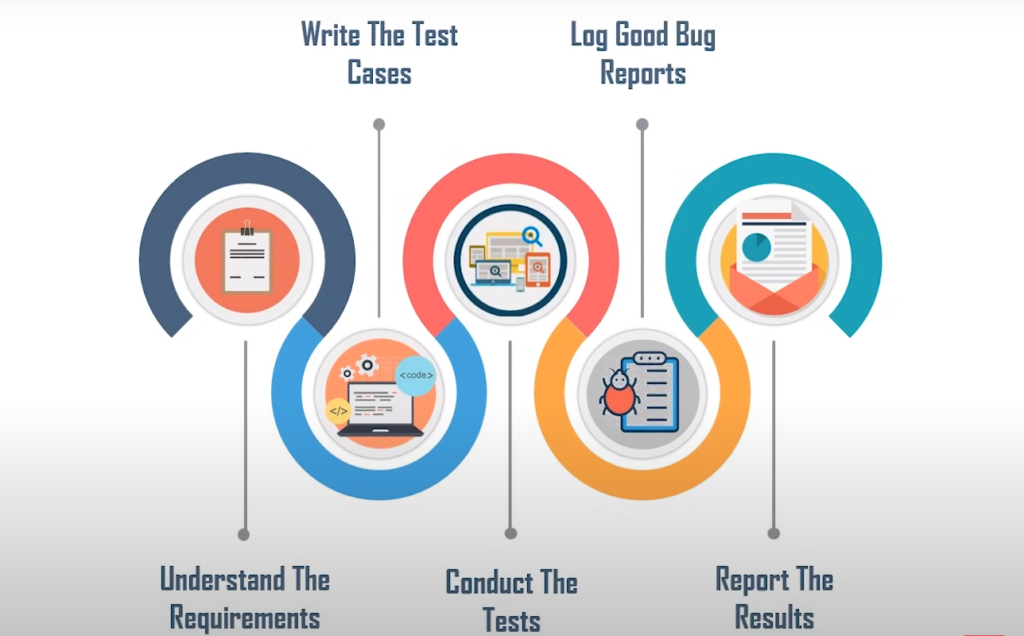
Version Control System
Version control systems such as Git are essential for software testers. Software testers should be able to use Git to manage source code, track changes, and collaborate with developers. They should be familiar with Git commands such as clone, pull, push, and commit.
In addition, software testers should be able to work with branches and merge code changes. They should also be able to use Git to revert changes and resolve conflicts.
Unix/Bash Commands
Unix/Bash commands are essential for software testers who work in a Linux environment. Software testers should be familiar with basic Unix commands such as ls, cd, mkdir, and rm [3]. They should also be able to navigate the file system and manipulate files and directories.
In addition, software testers should be able to write Bash scripts to automate common tasks such as file manipulation and system administration.
Non-Technical Skills Required To Become A Software Tester:
Analytical Skills
Software testers should be able to think logically and systematically to identify the root cause of a problem. They should be able to analyze data and information to make informed decisions and provide solutions to problems. Additionally, software testers should be able to work under pressure and meet tight deadlines while maintaining a high level of accuracy.
Communication Skills
Effective communication skills are another essential non-technical skill for software testers. Software testers need to communicate effectively with developers, project managers, and other stakeholders. They should be able to explain technical issues in non-technical terms and provide clear, concise reports on their findings.
Software testers should be able to communicate clearly and professionally in both written and verbal forms. They should also be able to actively listen to others and ask clarifying questions to ensure they fully understand the issue at hand.
Time Management Skills
Time management skills are also important for software testers. Software testers should be able to manage their time effectively to meet project deadlines. They should be able to prioritize tasks and work efficiently to ensure that testing is completed on time.
Software testers should also be able to manage their workload and handle multiple projects simultaneously. They should be able to plan and organize their work effectively to ensure that all tasks are completed on schedule.
Attitude And Passion
Attitude and passion are also important non-technical skills for software testers. Software testers should have a positive attitude and a passion for software testing. They should be enthusiastic about their work and committed to producing high-quality results.
Furthermore, software testers should be willing to learn and adapt to new technologies and testing methodologies. They should be proactive in their approach to testing and continuously seek ways to improve their skills and knowledge.
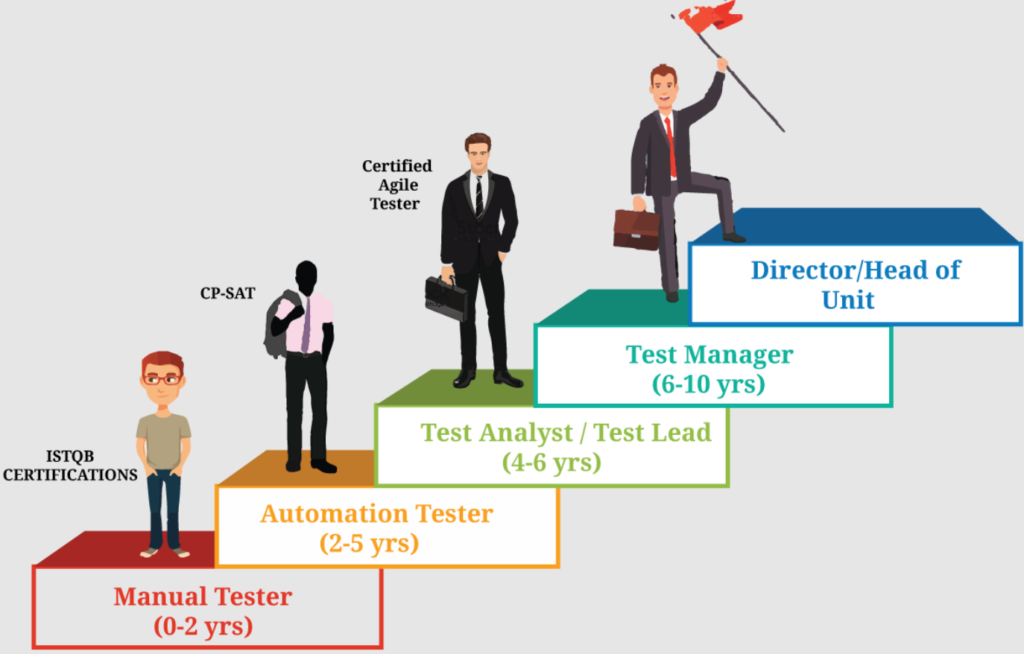
How To Build A Career Path of a Software Tester?
Building a career path as a software tester requires a combination of skills, experience, and education.
Here are some steps to follow to build a successful career path as a software tester:
- Gain Education and Training: A degree in computer science or a related field can provide a strong foundation in software development principles and programming languages. You can also consider taking courses or certifications in software testing to enhance your knowledge and expertise in the field;
- Develop Technical Skills: As a software tester, you need to have technical skills in programming languages, software testing tools, and technologies. Keeping up-to-date with the latest technologies and testing methodologies can help you stay ahead of the competition and advance your career;
- Build Industry Experience: Gaining industry experience is crucial for building a career as a software tester. Consider working on different projects and learning new technologies to build your experience and expertise;
- Specialize in a Niche Area: Specializing in a niche area of software testing, such as automation testing, performance testing, or security testing, can help you stand out from the crowd and increase your job prospects;
- Obtain Certifications: Certifications such as ISTQB, CSTE, or CSQA can help you demonstrate your knowledge and expertise in software testing, making you more desirable to employers;
- Network and Attend Conferences: Networking with other professionals in the software testing field can help you build connections and learn about new opportunities. Attending conferences and industry events can also help you stay up-to-date with the latest trends and technologies in software testing;
- Seek Career Advancement: As you gain experience and expertise, consider seeking career advancement opportunities, such as becoming a team leader, project manager, or test manager [4];
Best Degrees for Software Tester Career
While there is no specific degree required to become a software tester, certain degrees can provide a strong foundation for a career in software testing.
Here are some of the best degrees for a software tester career:
- Computer Science: A degree in computer science can provide a strong foundation in programming languages, software development principles, and computer systems. This knowledge can be applied to software testing and help you understand the underlying technologies and software development processes;
- Software Engineering: A degree in software engineering provides a deep understanding of the software development process, from design to testing to deployment. This knowledge can be applied to software testing and help you identify potential issues and defects in the software;
- Information Technology: A degree in information technology provides knowledge in computer systems, networking, and database management. This knowledge can be applied to software testing and help you understand the technical aspects of software testing;
- Quality Assurance: A degree in quality assurance provides knowledge of quality management principles, methodologies, and tools. This knowledge can be applied to software testing and help you identify potential issues and defects in the software and ensure that it meets quality standards;
- Mathematics or Statistics: A degree in mathematics or statistics can provide a strong foundation in data analysis, which can be applied to software testing. This knowledge can be used to develop testing strategies and identify potential issues in the software [5];
In addition to a degree, certifications such as ISTQB or CSTE can also be valuable for a career in software testing. Ultimately, the best degree for a software tester’s career will depend on the individual’s interests, skills, and career goals.
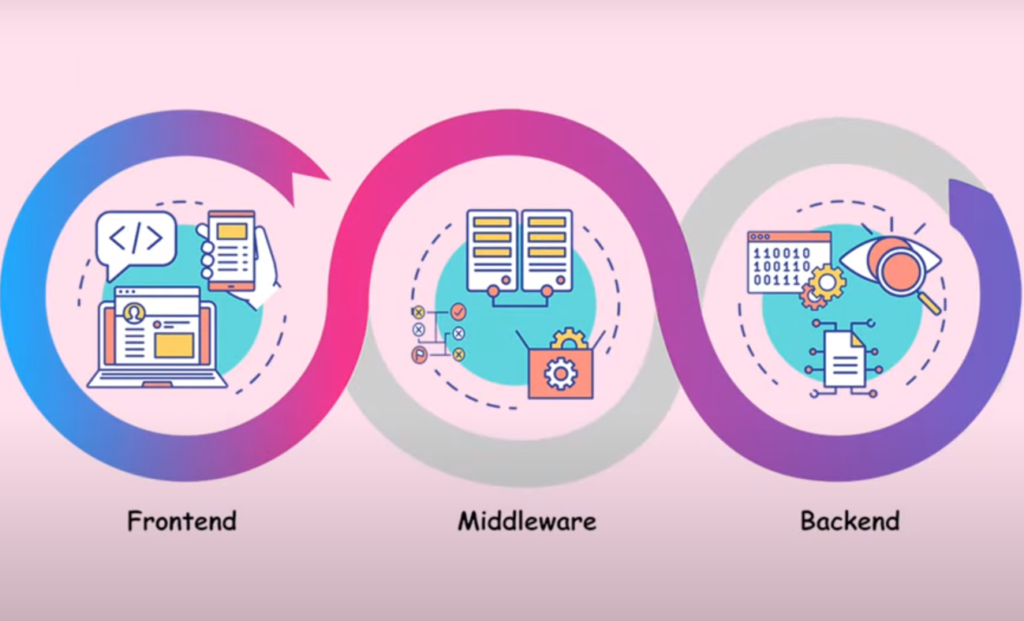
FAQ:
- How can I start a career in software testing?
To start a career in software testing, one can begin by learning the basics of software testing, including different testing methodologies, test design techniques, and testing tools. This can be achieved through online courses, tutorials, and self-study. Additionally, gaining practical experience through internships, freelance work, or volunteering can also be beneficial. Pursuing a degree or certification in software testing can also increase one’s chances of finding a job in this field.
- Can you become a software tester with no experience?
Yes, it is possible to become a software tester with no experience. However, it may be more challenging to find a job without any prior experience. Gaining practical experience through internships, freelance work, or volunteering can help to overcome this challenge and increase one’s chances of finding a job.
- Can I learn software testing on my own?
Yes, it is possible to learn software testing on your own. There are many online resources available, including courses, tutorials, and books that can help one to learn the basics of software testing. Additionally, gaining practical experience through internships, freelance work, or volunteering can also be beneficial.
- How long does it take to become a software tester?
The time it takes to become a software tester can vary depending on one’s starting point and the path one takes. Gaining a basic understanding of software testing can take several weeks to months. Pursuing a degree or certification in software testing can take several months to years. Gaining practical experience through internships, freelance work, or volunteering can also take several months to years.
- Is software testing a stressful job?
Software testing can be a stressful job, particularly when deadlines are tight or there are significant defects in the software being tested. However, with good project management, communication, and teamwork, stress can be minimized.
- Are software testers paid well?
Software testers can be paid well, particularly those with experience and specialized skills. However, the salary can vary depending on the location, industry, and company.
- Is software testing hard?
Software testing can be challenging, particularly when dealing with complex software or a large number of defects. However, with the right skills and knowledge, it can be a manageable and rewarding job.
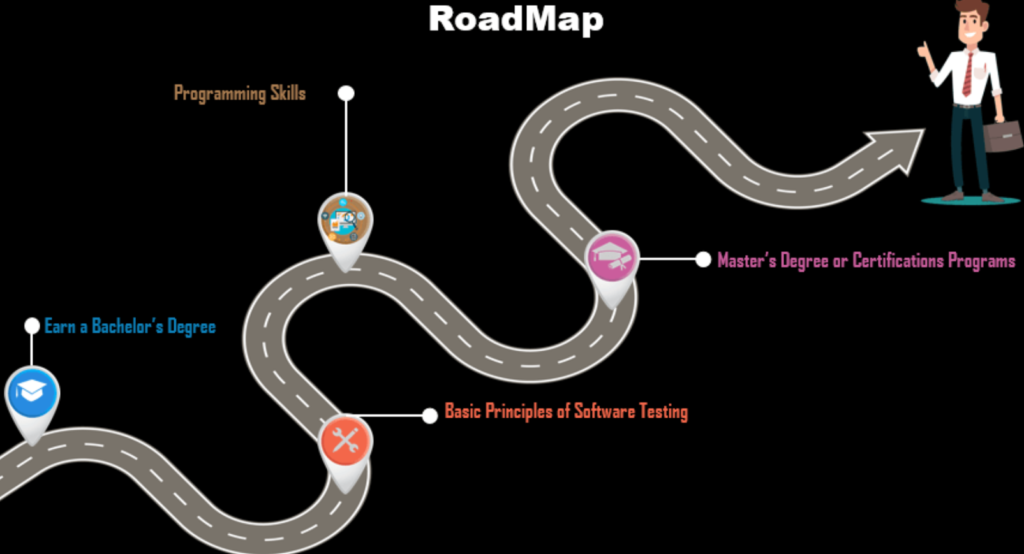
- Does the software tester require coding?
While knowledge of programming and scripting languages can be helpful for a software tester, it is not always required. Some testing tasks can be performed using manual techniques, while others may require knowledge of automation tools and frameworks.
- What is the lowest salary of a software tester?
The lowest salary of a software tester can vary depending on the location, industry, and company. However, entry-level salaries can range from $ 30,000 to $ 50,000 per year.
- Which skill is not required for a software tester?
While there are many skills that are required for a software tester, one skill that is not typically required is graphic design.
- What certifications do I need to be a software tester?
There are several certifications available for software testers, including ISTQB (International Software Testing Qualifications Board), CSTE (Certified Software Tester), and CSQA (Certified Software Quality Analyst), among others [6]. While certification is not always required, it can be beneficial for career advancement and demonstrating one’s knowledge and skills.
- Which testing is high in demand?
Currently, automated testing is in high demand, particularly with the rise of DevOps and continuous integration/continuous delivery (CI/CD) practices. Additionally, testing for mobile applications and security testing are also in high demand.
- What are 6 skills required to become a good software tester?
6 skills required to become a good software tester include:
- Attention to detail – to ensure all aspects of the software is thoroughly tested;
- Analytical thinking – to identify and diagnose defects;
- Communication – to effectively communicate with developers, project managers, and other stakeholders;
- Test design – to develop effective test cases and test plans;
- Technical skills – to use automation tools and frameworks, as well as understand the underlying technologies being tested;
- Continuous learning – to keep up-to-date with new technologies and testing methodologies [7];
- Can anyone become a QA tester?
Yes, anyone can become a QA (Quality Assurance) tester with the right training and skills. There are no specific educational requirements to become a QA tester, although some employers may prefer candidates with a degree in a related field like Computer Science, Software Engineering, or Information Technology. However, having an aptitude for problem-solving, attention to detail, good communication skills, and a strong work ethic can go a long way in pursuing a career in software testing.
- Which country pays the highest salary for software testers?
The country that pays the highest salary for software testers varies depending on factors such as the cost of living, demand for skilled workers, and the industry in which one works. However, according to the data from PayScale, the countries that offer some of the highest salaries for software testers include the United States, Switzerland, Denmark, and Germany [8].
- Is Python necessary for software testing?
Python is not necessarily required for software testing, but it can be a useful tool for test automation. Python has a rich set of libraries that can be used for various types of testing, such as unit testing, functional testing, and regression testing. Additionally, many popular testing frameworks, such as Selenium and Pytest, use Python as their primary language.
- Which language is best for software testing?
There is no one “best” language for software testing as different testing tools and frameworks support different programming languages. However, some popular languages used in software testing include Java, Python, JavaScript, Ruby, and C# [9].
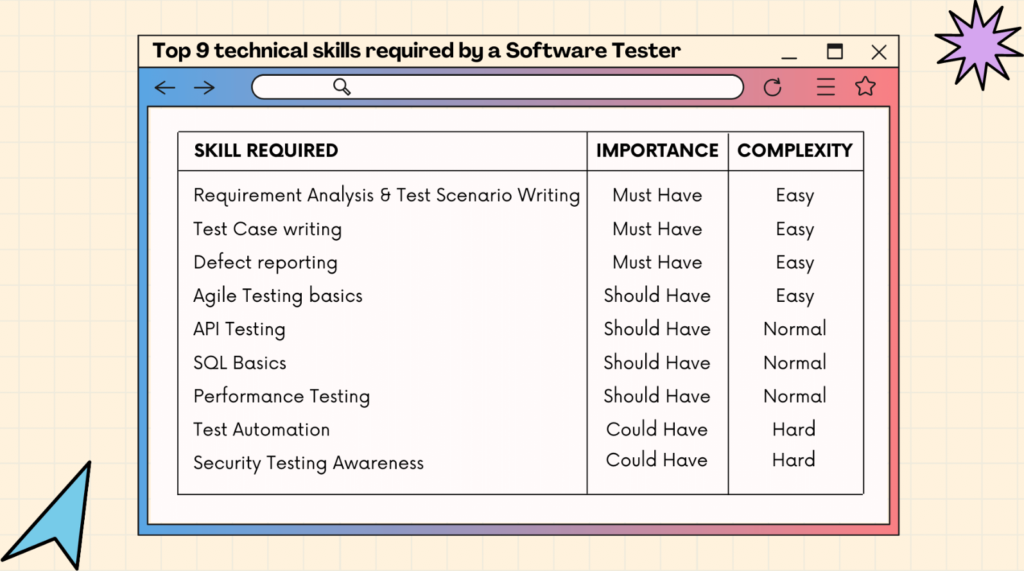
- Which app is used for software testing?
Several software testing tools and applications are available, including Selenium, Appium, TestRail, Jira, and HP Quality Center [10]. The choice of the app depends on the type of software being tested, the testing objectives, and the testing methodology.
- Which is the most difficult testing?
The most difficult testing depends on the complexity of the software being tested, the testing objectives, and the testing environment. Some types of testing that are considered challenging include performance testing, security testing, and usability testing.
- What is the salary of a manual tester at Amazon?
The salary of a manual tester in Amazon depends on the level of experience, location, and job role. The average salary for a manual tester at Amazon in the United States is around $ 97,000 per year [11]. However, this can vary depending on the specific job role and the location of the Amazon office.
Useful Video: 6 Steps to Become a Software Tester with No Experience
References:
- https://www.bls.gov/ooh/computer-and-information-technology/software-developers.htm?view_full
- https://www.knowledgehut.com/blog/software-testing/how-to-become-software-tester
- https://www.guru99.com/software-testing-career-complete-guide.html
- https://intellipaat.com/blog/how-to-become-software-tester/
- https://www.wgu.edu/career-guide/information-technology/software-tester-career.html
- https://sdacademy.dev/how-to-become-a-software-tester-a-step-by-step-guide/
- https://www.coursesonline.co.uk/h/how-to-become-a-software-tester/
- https://www.indeed.com/career-advice/finding-a-job/how-to-become-software-tester
- https://www.hiration.com/blog/how-to-become-a-software-tester/
- https://www.salary.com/articles/how-to-become/how-to-become-a-software-tester
- https://www.glassdoor.com/Salary/Amazon-Manual-Tester-Salaries-E6036_D_KO7,20.htm










Leave a Review